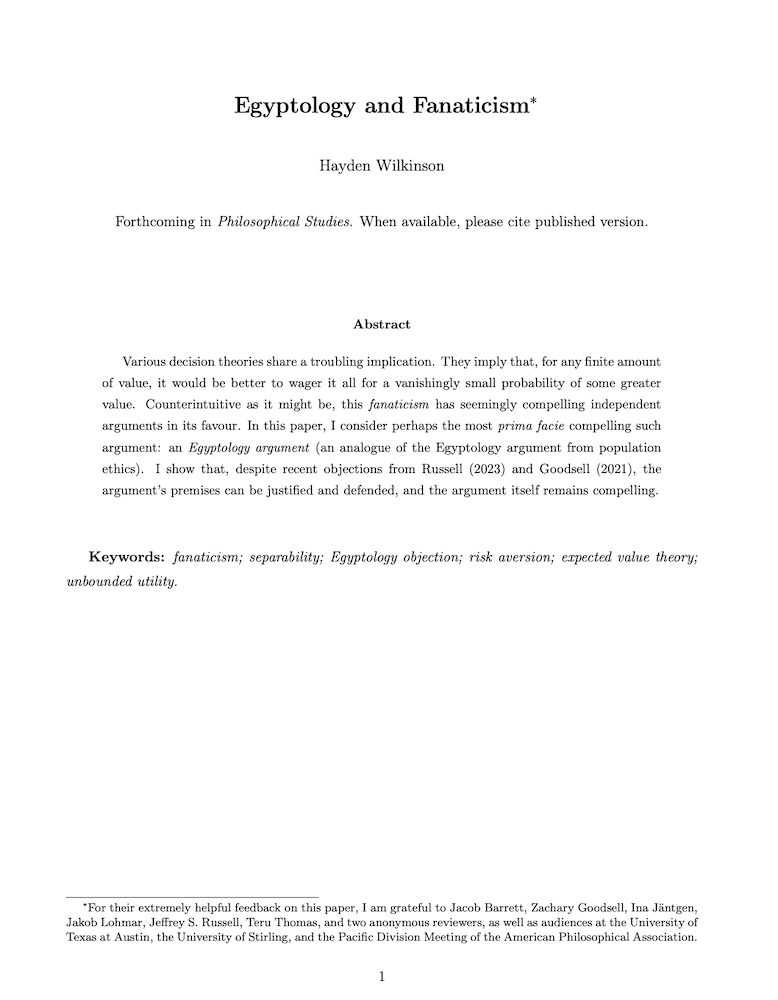Egyptology and Fanaticism
Hayden Wilkinson (Global Priorities Institute, University of Oxford)
GPI Working Paper No. 12-2023, forthcoming in Philosophical Studies
Various decision theories share a troubling implication. They imply that, for any finite amount of value, it would be better to wager it all for a vanishingly small probability of some greater value. Counterintuitive as it might be, this fanaticism has seemingly compelling independent arguments in its favour. In this paper, I consider perhaps the most prima facie compelling such argument: an Egyptology argument (an analogue of the Egyptology argument from population ethics). I show that, despite recent objections from Russell (2023) and Goodsell (2021), the argument's premises can be justified and defended, and the argument itself remains compelling.
Other working papers
Aggregating Small Risks of Serious Harms – Tomi Francis (Global Priorities Institute, University of Oxford)
According to Partial Aggregation, a serious harm can be outweighed by a large number of somewhat less serious harms, but can outweigh any number of trivial harms. In this paper, I address the question of how we should extend Partial Aggregation to cases of risk, and especially to cases involving small risks of serious harms. I argue that, contrary to the most popular versions of the ex ante and ex post views, we should sometimes prevent a small risk that a large number of people will suffer serious harms rather than prevent…
How should risk and ambiguity affect our charitable giving? – Lara Buchak (Princeton University)
Suppose we want to do the most good we can with a particular sum of money, but we cannot be certain of the consequences of different ways of making use of it. This paper explores how our attitudes towards risk and ambiguity bear on what we should do. It shows that risk-avoidance and ambiguity-aversion can each provide good reason to divide our money between various charitable organizations rather than to give it all to the most promising one…
The Hinge of History Hypothesis: Reply to MacAskill – Andreas Mogensen (Global Priorities Institute, University of Oxford)
Some believe that the current era is uniquely important with respect to how well the rest of human history goes. Following Parfit, call this the Hinge of History Hypothesis. Recently, MacAskill has argued that our era is actually very unlikely to be especially influential in the way asserted by the Hinge of History Hypothesis. I respond to MacAskill, pointing to important unresolved ambiguities in his proposed definition of what it means for a time to be influential and criticizing the two arguments…

